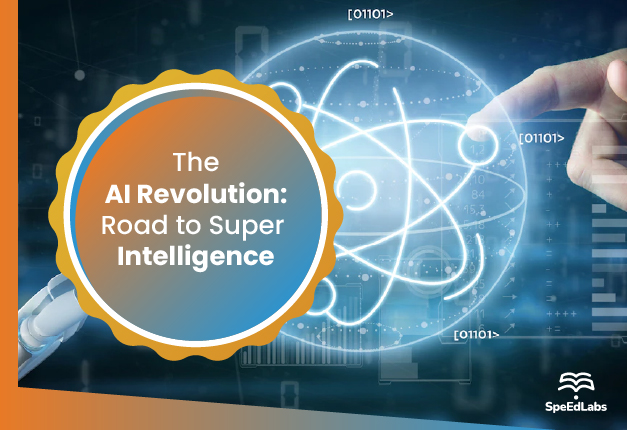AI has spread its roots and offshoots across the board, from autonomous vehicles to robotic process automation. It is only a matter of time before AI opportunities accelerate due to widespread adoption.
When it comes to current artificial intelligence trends, one of the most astounding projections is that the AI software market will grow from $1.4 billion in 2016 to $59.8 billion in 2025. This year, more than 4 billion people will have AI voice assistants on their mobile devices. Much has been written about artificial intelligence, but we can now see the outline and framework of what is to come, as well as the foundation of the revolution, settling into place. Today is referred to as the “Age of Confusion,” but the “Age of Artificial Intelligence” or “Age of Superintelligence” will soon replace it. The big question is whether AI will help humans or destroy us.
Speech recognition, machine learning, recommendation systems, and personal assistants were among the early technologies that gave birth to the Artificial Intelligence Revolution. The ongoing digital revolution, expanding mobile technology, the Internet of Things, nanotechnology, and the genetic revolution are all being added to this list.
The Foundation for Singularity
According to Ray Kurzweil, the coming singularity, or the merging of humans and machines, is supported by three areas. This includes the following revolutions: 1) the Genetic Revolution, 2) the Nanotechnology Revolution, and 3) the Artificial Intelligence Revolution, in which machines become smarter than humans.
The Flourishing of the Artificial Intelligence Age
Kevin Kelly of Wired Magazine recently published an article outlining the three breakthroughs that will underpin the AI Revolution: First, low-cost parallel computing will lead to complex neural networks; second, big data and the generation of massive amounts of information will be used by AI software to learn and provide insights to humans; and third, constantly improving algorithms will be created not only by humans but also by “deep learning machines.” Emerging fields of study such as cognitive robotics, cognitive informatics, cognitive computing, abstract intelligence, cognitive systems, autonomous learning, and neuroinformatics, to name a few, are all poised to complete the Artificial Intelligence Revolution.
One of the most important aspects of the new Artificial Intelligence Revolution will be the replacement of humans with smart machines that will work semi-autonomously and then autonomously to do the work previously done by lawyers, writers, historians, doctors, and teachers, among others.
AI in various Sectors
Some industries are just getting started with AI, while others are well on their way. Both have a long journey ahead of them. Regardless, the impact of artificial intelligence on our daily lives is difficult to ignore.
- Transportation: Although it may take some time to perfect, self-driving cars will one day ferry us around.
- Manufacturing: AI-powered robots collaborate with humans to perform limited tasks such as assembly and stacking, while predictive analysis sensors keep equipment running smoothly.
- Healthcare: Diseases are diagnosed more quickly and accurately, drug discovery is accelerated and streamlined, virtual nursing assistants keep an eye on patients, and big data analysis helps to create a more individualised patient experience in the relatively young field of AI-based healthcare.
- Education: Artificial intelligence (AI) is used to digitise textbooks, early-stage virtual tutors support human instructors, and facial analysis measures student emotions to better identify who is struggling or bored and better adapt the experience to their specific needs.
- Media: Journalism is utilising AI as well and will continue to do so. To help readers quickly understand complex financial reports, Bloomberg uses Cyborg technology. The Associated Press now generates nearly four times as many earning reports stories per year (3,700) using Automated Insights’ natural language processing capabilities.
- Customer service: Last but not least, Google is developing an AI assistant that can make phone calls that sound like they were made by a human to schedule appointments at, say, your local hair salon. The system is capable of comprehending context and nuance in addition to words.
Big things are bound to happen with businesses investing billions of dollars annually in AI products and services, tech behemoths like Google, Apple, Microsoft, and Amazon investing billions to develop those products and services, universities incorporating AI more prominently into their curricula, and the U.S. Department of Defence stepping up its AI game. Some of those advancements are almost entirely realised, while others are still merely theoretical and might stay that way. There is no sign of a downturn; everything is disruptive, for better or worse.
Will AI rule the world?
Since 60 percent of businesses are expected to be impacted by AI, it is expected to have a long-lasting effect on nearly every industry imaginable. Artificial intelligence is already present in our smart devices, cars, healthcare system, and favourite apps, and soon, we will continue to see its influence encroach deeper into many other industries.
Also published on Medium.
